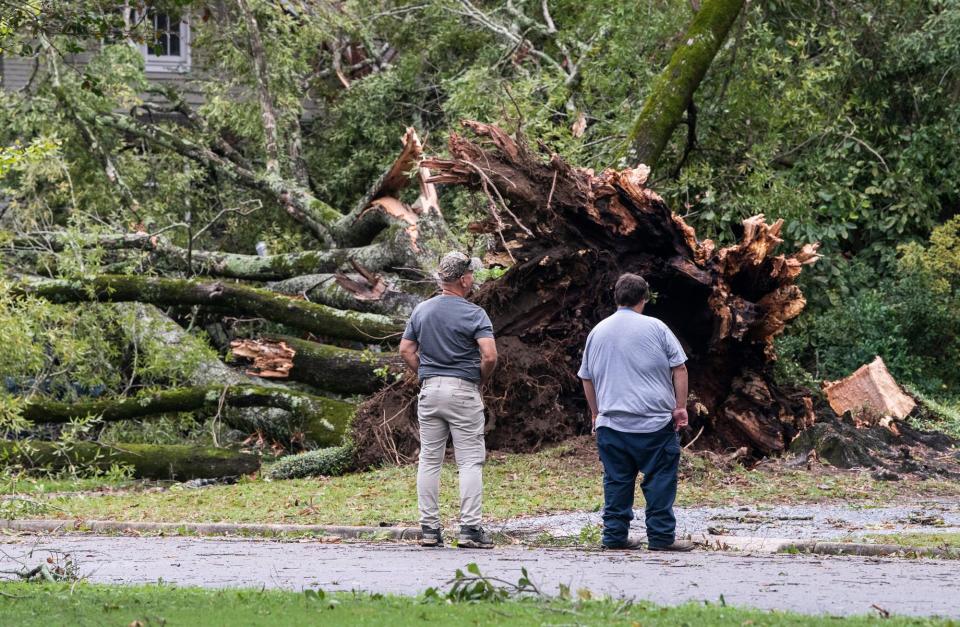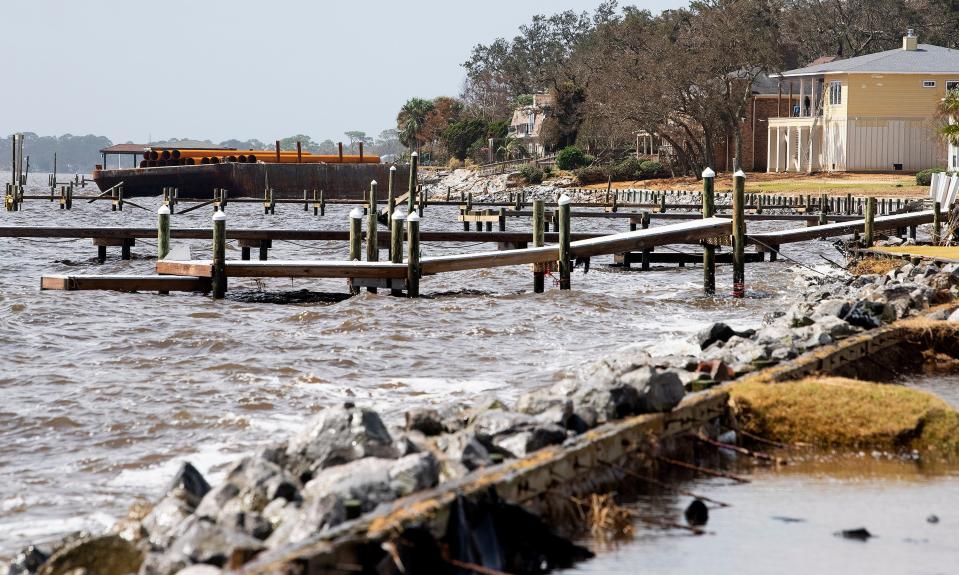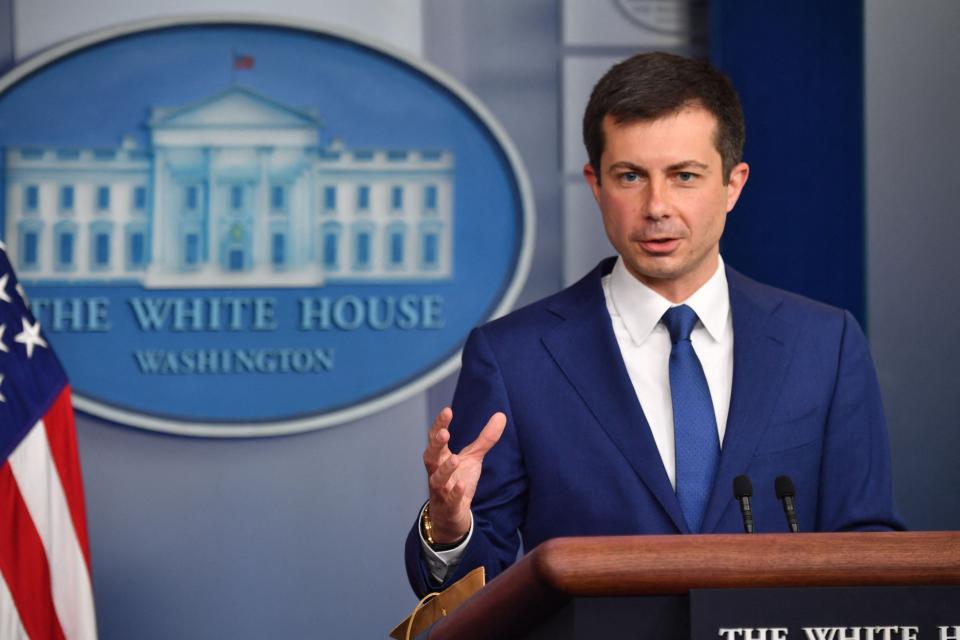Alabama gets $8.65 million in emergency support to repair damage from 2020 Hurricane Sally
South Alabama essentially shut down in mid September of 2020.
Beyond the COVID-19 protocols that kept many people in their homes, residents were also faced with Hurricane Sally.
Upgraded from a tropical storm to a Category 2 hurricane, Sally made landfall at Gulf Shores, Alabama, on the morning of Sept. 16. Rural areas, especially, saw downed trees, flooded roads and at least one death. Later that year, in October, a Category 3 Hurricane Zeta swept across the state. Communities that were damaged in their paths are still feeling the impact of both storms.
Government agencies have already dedicated more than $300 million to recovery efforts, but as of Wednesday, more funds are headed toward the cause.

The U.S. Department of Transportation’s Federal Highway Administration announced Wednesday morning that it will provide $8.56 million in Emergency Relief Program funds to repair Alabama roads and bridges — specifically those damaged during Sally and other weather events like the March 2021 tornadoes.
The Alabama Department of Transportation will finance specific repair projects, and the Emergency Relief Program funds will be used to reimburse the department.

Alabama’s nearly $9 million is just a portion of the overall $513.2 million Emergency Relief Program package that the Federal Highway Administration announced today. Thirty other states, the District of Columbia and Puerto Rico will also receive money for repairs to roads and bridges damaged during weather events in recent years.
“These funds will help communities across our nation repair roads and bridges damaged by severe weather events, which are becoming increasingly common because of climate change,” U.S. Transportation Secretary Pete Buttigieg said in a statement. “From recent hurricanes that struck the Gulf Coast, to wildfires in California and floods and mudslides in numerous states, we must address the devastating impacts of climate change and work to build more sustainable transportation infrastructure to better withstand its impacts for years to come.”

Climate change refers to long-term shifts in temperatures and weather patterns. In the past, these shifts may have been natural, but now, humans are considered the main driver of climate change by burning fossil fuels like coal, oil and gas.
Conditions associated with climate change can lead to more frequent and intense storms.
“Climate change impacts the lives of Americans on a daily basis and has increasingly meant that our nation’s transportation infrastructure is facing more frequent and unpredictable damage from severe weather events,” acting Federal Highway Administrator Stephanie Pollack said.
The Department of Transportation’s statement on the funding also mentioned other ways it is working in President Joe Biden’s administration to “tackle climate change.” These included advancing the use of materials and structural techniques to ensure highways are better prepared to withstand extreme events and potentially changing Emergency Relief program regulations to incorporate climate resiliency.
This article originally appeared on Montgomery Advertiser: Alabama receives millions to repair hurricane damaged roads, bridges
